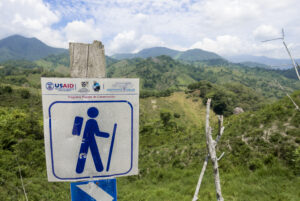In recent years, there has been a renewal of interest among donors and governments in the role of family agriculture in rural development. In the 1980s and 1990s, Latin American governments and international donors moved to shrink government expenditures on agriculture, and interest in small farmers seemed destined to wane indefinitely. A new WOLA publication, Government Investment in Family Agriculture: Opportunities in Mexico and Central America, reviews the resurgence of family agriculture in political discourse.
The report focuses on Mexico and Central America, where persistent poverty and underdevelopment in the rural sector has helped drive immigration to the United States in recent decades. It finds that Mexican and Central American governments have launched several initiatives for family agriculture in recent years and have given small farmers more prominence in official rhetoric and development strategies. However, it also finds that there is a striking gap between the way that new initiatives are being framed and the actual programs that they contain.
Overall investment in agriculture remains low, especially when compared to 1980s levels, and government spending often favors wealthier farmers. Even when spending is directed toward family agriculture, it tends to consist mostly of handouts, whether in the form of direct subsidies or the distribution of livestock, seeds, or fertilizer. While it is positive that governments and donors are expressing renewed interest in family agriculture, this interest has yet to translate into comprehensive strategies to help farmers succeed.

